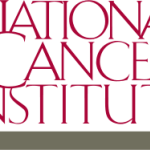- المجال: Government; Health care
- Number of terms: 6957
- Number of blossaries: 0
- Company Profile:
The National Cancer Institute (NCI) is part of the National Institutes of Health (NIH), which is one of 11 agencies that compose the Department of Health and Human Services (HHS). The NCI, established under the National Cancer Institute Act of 1937, is the Federal Government's principal agency for ...
A cancer vaccine containing PR1, a 9 amino-acid human leukocyte antigen (HLA)-A2 restricted peptide derived from proteinase 3, with potential immunotherapeutic activity. Vaccination with PR1 leukemia peptide vaccine may stimulate the host immune system to mount a cytotoxic T lymphocyte (CTL) response against tumor cells expressing proteinase 3, resulting in tumor cell lysis. Often overexpressed in leukemic cells, proteinase 3 is a serine proteinase that activates progelatinase A and is involved in angiogenesis and metastasis.
Industry:Pharmaceutical
A cancer vaccine containing plasmid DNA encoding human prostatic acid phosphatase (PAP) (pTVG-HP) with potential immunostimulatory and antineoplastic activities. Upon administration, pTVG-HP plasmid DNA vaccine may stimulate the host immune system to generate a cytotoxic T lymphocyte (CTL) response against PAP-expressing prostate cancer cells. PAP or prostatic specific acid phosphatase (PSAP) is a tumor associated antigen (TAA) that may be overexpressed in prostate cancer.
Industry:Pharmaceutical
A cancer vaccine containing of a synthetic form of the renal cell carcinoma (RCC)-associated antigen G250 with potential antineoplastic activity. Vaccination with G250 peptide vaccine may stimulate the host immune system to mount a cytotoxic T lymphocyte (CTL) response against tumor cells positive for the G250 antigen, resulting in decreased tumor growth. Found in the majority of renal cell carcinomas, G250 is a cell surface tumor-associated antigen (TAA) that contains an HLA-A2. 1-restricted epitope that is recognized by CTLs.
Industry:Pharmaceutical
A cancer vaccine containing HLA-A*2402-restricted epitope peptides URLC10 (up-regulated lung cancer 10) with potential immunostimulatory and antineoplastic activities. Upon administration, HLA-A*2402-restricted URLC10 peptides vaccine may stimulate a cytotoxic T lymphocyte (CTL) response against URLC10-expressing tumor cells. URLC10, a tumor associated antigen, is often overexpressed in lung, esophageal and gastric cancers. HLA-A*2402 is an MHC class I molecule that presents antigenic peptides to CD8+ T cells; epitope design restricted to epitopes that bind most efficiently to HLA-A*2402 may improve antigenic peptide immunogenicity.
Industry:Pharmaceutical
A cancer vaccine containing multiple synthetic antigen peptides derived from MAGE-A1, Her-2/neu, and folate binding protein (FBP) with potential immunostimulating and antineoplastic properties. MAGE-A1, Her-2/neu, FBP peptides cancer vaccine includes the antigen peptides MAGE-A1:161-169, FBP:191-199, Her-2/neu:369-377, MAGE-A1:96-104, and Her-2/neu:754-762. Upon administration, this cancer vaccine may stimulate the immune system to mount a cytotoxic T-cell (CTL) response against tumor cells expressing these antigen peptides, resulting in tumor cell lysis. MAGE-A1, Her-2/neu, and FBP proteins may be over-expressed in various cancer cell types, such as epithelial ovarian cancer cells.
Industry:Pharmaceutical
A cancer vaccine containing HLA-A*2402-restricted epitopes derived from DEP domain containing 1 (DEPDC1) and M phase phosphoprotein 1 (MPHOSPH1) with potential immunostimulatory and antineoplastic activities. Upon administration, DEPDC1/MPHOSH1 peptide vaccine may elicit a specific cytotoxic T lymphocyte (CTL) response against tumor cells expressing DEPDC1 and MPHOSPH1, tumor antigens that are overexpressed in bladder cancer cells. HLA-A*2402 is an MHC class I molecule that presents antigenic peptides to CD8+ T cells; epitope design restricted to epitopes that bind most efficiently to HLA-A*2402 may improve antigenic peptide immunogenicity.
Industry:Pharmaceutical
A cancer vaccine containing four HLA-A*2402-restricted peptide epitopes with potential immunostimulatory and antitumor activities. The peptide epitopes are derived from URLC10 (up-regulated lung cancer 10); CDCA1 (cell division associated 1); and vascular endothelial growth factor receptors (VEGFRs) 1 and 2. Upon administration, HLA-A*2402-restricted URLC10-CDCA1-VEGFR1-VEGFR2 multipeptide vaccine may stimulate a cytotoxic T lymphocyte (CTL) response against URL10-, CDCA1-, VEGFR1- and VEGFR2-expressing tumor cells, resulting in tumor cell lysis and decreased tumor cell proliferation. HLA-A*2402 is an MHC class I molecule that presents antigenic peptides to CD8+ T cells; epitope design restricted to epitopes that bind most efficiently to HLA-A*2402 may improve antigenic peptide immunogenicity.
Industry:Pharmaceutical
A cancer vaccine containing HLA class I- and II-binding peptides derived from the NY-ESO-1/LAGE-1 cancer/testis antigen with potential immunostimulatory and antineoplastic activities. Upon administration, NY-ESO-1/LAGE-1 HLA class I/II peptide vaccine may induce a cytotoxic immune response against tumor cells that over-express NY-ESO-1/LAGE-1. Rarely expressed by normal cells, the NY-ESO-1/LAGE-1 cancer/testis antigen has been shown to be preferentially expressed on the surface of some cancer cell types.
Industry:Pharmaceutical
A cancer vaccine containing four HLA-A*2402-restricted peptide epitopes with potential immunostimulatory and antitumor activities. Peptide epitopes in this vaccine are derived from ring finger protein 43 (RNF43); translocase of outer mitochondrial membrane 34 (TOMM34); and vascular endothelial growth factor receptors (VEGFR) 1 and 2. Upon administration, HLA-A*2404-restricted RNF43-TOMM34-VEGFR1-VEGFR2 multipeptide vaccine may stimulate a cytotoxic T lymphocyte (CTL) response against tumor cells expressing RNF43, TOMM34, and VEGFR 1 and 2 peptides, resulting in tumor cell lysis and decreased tumor growth. HLA-A*2402 is an MHC class I molecule that presents antigenic peptides to CD8+ T cells; epitope design restricted to epitopes that bind most efficiently to HLA-A*2402 may improve antigenic peptide immunogenicity.
Industry:Pharmaceutical
A cancer vaccine containing four HLA-A*2402-restricted peptide epitopes with potential immunostimulatory and antitumor activities. Peptide epitopes in this vaccine are derived from URLC10 (up-regulated lung cancer 10 or CO16); KOC1 (IGF II mRNA Binding Protein 3); and vascular endothelial growth factor receptors (VEGFRs) 1 and 2. Upon administration, this multipeptide vaccine may stimulate a cytotoxic T lymphocyte (CTL) response against URL10-, KOC1-, VEGFR1- and VEGFR2-expressing tumor cells, resulting in tumor cell lysis and decreased tumor growth. HLA-A*2402 is an MHC class I molecule that presents antigenic peptides to CD8+ T cells; epitope design restricted to epitopes that bind most efficiently to HLA-A*2402 may improve antigenic peptide immunogenicity.
Industry:Pharmaceutical
